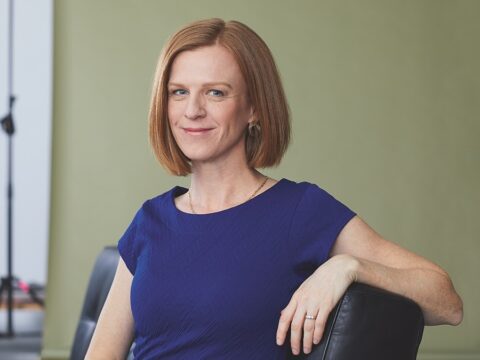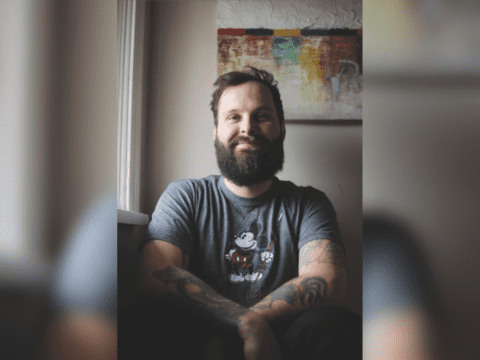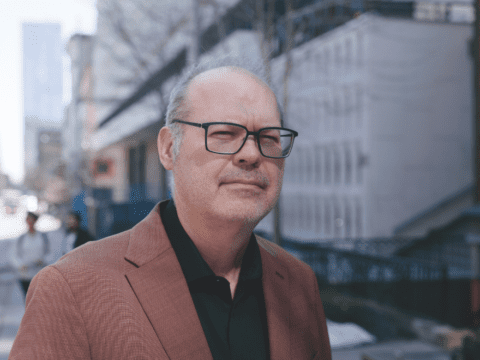Michelle Harder believes much of fundraising isn’t necessarily about the money. The trick is in preparing people to be ready to give. Based in Windsor, Ont., Harder has more than 20 years of experience in fundraising and non-profit development. In her book, The Definitive Guide to Faith-Based Fund Development, she helps church leaders incorporate the principles of mainstream fundraising alongside their existing stewardship strategies to combat churches’ decline in attendance and finances. The project was a labour of love, expanding on the work of her late father, Ben Harder, a theologian and fundraising adviser for faith communities. Ben founded Harder & Associates (now Harder Consulting) in 1986. Together, the Harders have helped more than 250 churches raise the money to achieve their goals.
Leslie Sinclair: What is the biggest challenge in getting a church to change its fundraising?
You may unsubscribe from any of our newsletters at any time.
Michelle Harder: A lot of churches don’t want to talk about money until it’s a crisis, such as when the roof needs to be repaired. The biggest challenge churches face is just finding a comfort level in talking about giving and finances in day-to-day operations. Canadians don’t like to talk about money in general, never mind putting it into the context of the church. It’s easier for ministers and leadership to talk about giving in the context of discipleship. When you take the opportunity to challenge people at that level, you’ll get a better response.
LS: What sources of revenue tend to be overlooked by churches?
MH: There are some hard-hitting facts and statements in the book that are going to make people’s backs go up. But I did that intentionally because that’s the stuff that makes people really think. We need to challenge what we’ve been doing and how we’ve always been doing it. For example, while non-profits pursue grants and sponsorships, a lot of churches don’t feel comfortable doing that. If you have a church conference, go get some sponsorship for it. A lot of congregations don’t have the vision to do more or anything different than they have always done.
LS: Are there special considerations when dealing with different generations in a church?
MH: Every generation, they are their own selves. Some churches are successful at bringing in young families and young people, and others are filled with people with grey hair. The later millennials and particularly gen Z look at the world very differently than my grandparents did. So they are going to look at their faith differently. They’re going to look at how their faith and their church interact with the world. The older generation took it as more of a duty to give to the church; the younger generation needs to be inspired to buy into that.
It’s not a theology issue. You can have whatever theology you’re comfortable with, but you have to own it. The elder generation have been very faithful givers in the congregation and even to secular non-profits. But this generation that gave the most money, particularly to the church, is shrinking fast. I don’t want to say it doesn’t look like they’re going to be replaced, because some sources say it does look like the younger generations are coming up.
More on Broadview:
LS: How should the relationship between leaders and congregations change with new ways of fundraising?
MH: In the secular world, organizations report back to their donors on what they did with the money. It’s the same principle in the church, but many churches don’t do it well enough.
You have to look at it as outreach. If a church isn’t doing a lot of outreach and all the funds coming in are staying in the church, people don’t want to be a part of that. They want the money to flow out into the community. They want to have an impact. Churches that have good outreach programs and are supporting and helping the community tend to be more financially stable because congregations understand where the money is going.
In theory, we’re all dutifully giving our 10 percent tithe, except, in reality, we’re not. How do you motivate people to give more? The same way as you would a regular donor. You have to report back to them to explain the impact of their donations. That really is the motivation to give.
LS: What can inspire people to give?
MH: If a person has it in their heart that they need to give as a Christian, they will give. To me, the issue is more about how you build on that: Are you inspiring people to give? Do you make it easy for people to give? Are you giving them different opportunities and things to give to? Are you revisiting why you’re doing what you’re doing? And are you making it clear to people what your mission is?
People think we’ll just send the offering plate around and people will give. Well, if you’re not inspiring people and you’re not telling them what the impact of their giving is, they’re not going to give. The key to a lot of it is getting feed- back. Do people understand why we’re doing this? Do they have any questions or concerns? Doing that last step, that feedback loop, builds engagement.
This interview has been edited for length and clarity.
***
Leslie Sinclair is a freelance journalist in Toronto.














